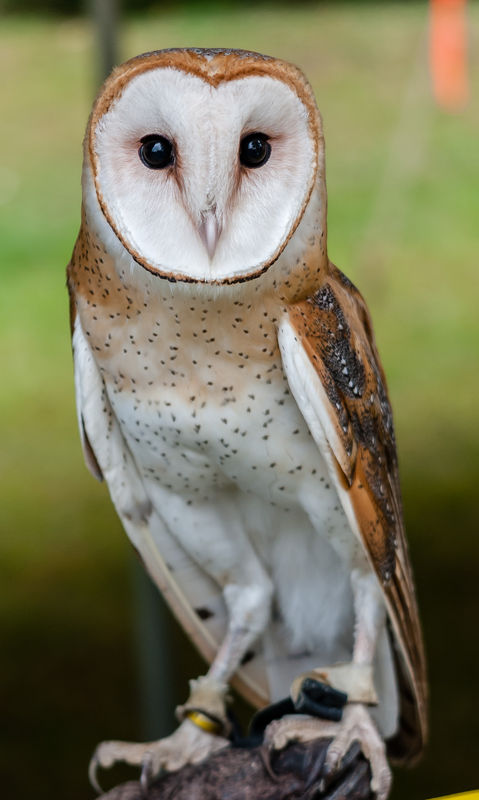Question about lens sharpness.
Mar 25, 2016 11:38:33 #
joer wrote:
At some point the need to enlarge the image for viewing would negate any sharpness advantage of the lens center.
:thumbup:
Mar 25, 2016 12:14:17 #
Cdouthitt wrote:
This is why a lot of m4/3 users like to adapt lenses...by adapting we use the best (central) part of the lens.
I just picked up some Canon Film gear for $100.
Correction:... that was two lenses... Both Canon and both f2.8.
A 100 and a 200 (for 400mm AOV on m4/3). Both FD. Also got a 50mm f3.5 Macro, bag and accessories.
Considering the 200 as fast and 400mm AOV. In good shape. Plan to just use the center of the lens. This was a film camera lens... so full frame essentially.
Planning to mount these adapted to the front of my Olympus EM10.
Also came with the unique Canon EF body... same era as the A-1 and F1. I consider the "Black Beauty" Canon EF SLR body one of the finest looking SLR's ever built. I now have two of them in excellent to near mint conditon.
Mar 25, 2016 12:35:55 #
Mark7829 wrote:
Checkout this video and your answer is about mid way through it
http://www.youtube.com/watch?v=YDbUIfB5YUc
The answer is NO
http://www.youtube.com/watch?v=YDbUIfB5YUc
The answer is NO
I have come to realize this some time ago and that is the main reason I switch to the 36mp Nikons and sold my D7100.
However, people argue and Even Tony N states this later in the video that for telephoto work a crop body is better suited.
A contradiction in my view.
Mar 25, 2016 13:01:48 #
Mark7829
Loc: Calfornia
joer wrote:
I have come to realize this some time ago and that is the main reason I switch to the 36mp Nikons and sold my D7100.
However, people argue and Even Tony N states this later in the video that for telephoto work a crop body is better suited.
A contradiction in my view.
However, people argue and Even Tony N states this later in the video that for telephoto work a crop body is better suited.
A contradiction in my view.
Only if you are if you have to crop. However if you get the entire image in the frame of a FF camera and lens - crop sensor has no advantage. And we are only taking about sports and wildlife photography. As everyone has said, invest in good lenses and they will reach and last a lifetime. Add a 1.4 TC with FF camera and lenses and you will still outperform any crop.
Mar 25, 2016 13:13:36 #
Mark7829 wrote:
Checkout this video and your answer is about mid way through it
http://www.youtube.com/watch?v=YDbUIfB5YUc
The answer is NO
http://www.youtube.com/watch?v=YDbUIfB5YUc
The answer is NO
The video does not answer the OP's question. The question was related to the soft (i.e. slightly out of focus) corners of certain lenses on FX bodies. Would the corner softness be reduced if that lens was used on a DX body? The OP's question did not relate to overall sharpness of the image. Northrup doesn't address corner softness at all.
Mar 25, 2016 13:55:36 #
hannaco wrote:
This is a what if question. Someone out there mig... (show quote)
If it is sharp in the center, but soft on the edges, it would be, overall, a better performer on a "crop sensor" camera, since that camera does not record the outer parts of the full-frame camera. In other words, the crop sensor is recording the central two-thirds (or whatever, depending on which crop factor applies) of the image which the lens delivers if it is a lens for full-frame use.
Mar 25, 2016 13:57:11 #
Mark7829 wrote:
Only if you are if you have to crop. However if you get the entire image in the frame of a FF camera and lens - crop sensor has no advantage. And we are only taking about sports and wildlife photography. As everyone has said, invest in good lenses and they will reach and last a lifetime. Add a 1.4 TC with FF camera and lenses and you will still outperform any crop.
If you begin with a larger sensor, for example 36mp FF vs 24mp crop, I don't think there is an advantage at the same AOV.
Mar 25, 2016 14:03:00 #
Mark7829
Loc: Calfornia
joer wrote:
If you begin with a larger sensor, for example 36mp FF vs 24mp crop, I don't think there is an advantage at the same AOV.
I am only addressing the comments made by the previous post regarding Northrup's video. You need to watch the video. Have you done that?
Mar 25, 2016 15:24:00 #
Mark7829 wrote:
I am only addressing the comments made by the previous post regarding Northrup's video. You need to watch the video. Have you done that?
Yes I have did you read my comment about later in the video?
Mar 25, 2016 17:09:34 #
Mark7829
Loc: Calfornia
joer wrote:
Yes I have did you read my comment about later in the video?
Perhaps you want to delve into what this has to do with angle of view?
Mar 25, 2016 19:02:05 #
Mark7829 wrote:
Check out http://www.youtube.com/watch?v=YDbUIfB5YUc
by Tony Northrup.
I love this site with all the experts who use their own limited experience and limited gear who come up with universal explanations which then is applied to all other situations. Thank god that is not true. As much as we love to simplify and therefore make easier to understand, if is often much more complex. If cameras were just pin hole devices, it could be that simple but it is not.
by Tony Northrup.
I love this site with all the experts who use their own limited experience and limited gear who come up with universal explanations which then is applied to all other situations. Thank god that is not true. As much as we love to simplify and therefore make easier to understand, if is often much more complex. If cameras were just pin hole devices, it could be that simple but it is not.
Mark. Tony Northrup is no expert. By his reckoning, I should be tossing my Nikon 24mm, 45mm and 85mm PC-E lenses in the garbage, because his numbers say that they are not going to be sharp on my D800.
These lenses have a huge image circle, large enough to cover 60mm x 90mm (5400mm^2), which is a much bigger difference than the 16x24 (384mm^2) DX compared to the 24x36 FX (864mm^2).
These are my sharpest lenses by far. And they are sharp corner to corner, edge to edge. Why? because they are only using the center part of the glass. This is plain and simple logic.
When I owned a D300 and a D700 and used my 600mm F4 - I was able to see a narrower angle of view with the D300, but when cropped and printed to the same print size and angle of view, the D700 images were clearly sharper. Magnifying a small sensor image 50% more takes it's toll on image sharpness.
BTW, my lenses let in the same amount of light at a given fstop regardless of what body they were mounted on. in addition, I have never seen a hand-held light meter make a distinction between FX lens on DX body, FX on FX or DX on DX. He is so full of crap.
I used to shoot 4x5 and had a wide range of lenses. Some were specific to 4x5 and just covered the format, while others were designed to cover 5x7 and 8x10 - and those were far sharper on my 4x5. Why? Because the smaller format just used the center of the lens.
None of what TN says makes any sense, and he contradicts himself several times. He sounds like a politician trying to sell snake oil on a used car lot.
There is zero loss of sharpness, resolution or detail when using a lens intended for larger formats on a smaller sensor camera, regardless of focal length.
Here are a few examples.
I don't make videos or write books or speak on the for-fee-lecture circuit - but I do have over 50 yrs experience in photography, and have worked in all formats from Minox, to Olympus PenF (half frame 35mm), to 35mm, 6x6, 6x7, 6x9, 4x6 and 8x10. I wonder what TM's credentials and experience amounts to?
Another thing - if FX lenses were so bad, why are there no DX pro-quality lenses out there? Nikon has a 17-55 F2.8 and maybe one more, but all the lenses are consumer oriented plastic cheap lenses, many with good optics, but not pro build quality.
Bottom line, I'd rather get my oats BEFORE they go through the horse. :)
Sigma 50-500 on D200 @500mm (FX on 10 mp DX)

(Download)
Sigma 50-500 on D700 @100mm (FX on 12mp FX)

(Download)
600mm F4 on D300 (FX on DX)

(Download)
600mm F4 on D700 (FX on FX)

(Download)
Mar 25, 2016 19:53:48 #
Mark7829
Loc: Calfornia
Gene51 wrote:
Mark. Tony Northrup is no expert. By his reckoning... (show quote)
I don't doubt your experience and a don't wholly trust TN but he is using DxO labs and I don't entirely discount DxO as many do. BUT I have not found an authoritative source that demonstrates with state-of-the-art laboratory tools that using a FX lens on a DX body will render a sharper image since the DX sensor is not using the entire FX lens but only the presumed sharper center portion. Have you read any white paper or other publication again from an authoritative resource that makes its business in doing such analysis that make that a true finding? I have not. And if this was so evident and logic based why not?
Mar 25, 2016 20:47:19 #
Mark7829 wrote:
I don't doubt your experience and a don't wholly t... (show quote)
Look at the MTF charts for two or more lenses designed for FF cameras. If it isn't immediately obvious then find a good explanation of what an MTF chart shows. Finding a lens that is equally sharp at the edges of an 36mm wide sensor as it is at the edges of a 24mm sensor will be rare.
Mar 25, 2016 20:55:41 #
Mark7829 wrote:
I don't doubt your experience and a don't wholly t... (show quote)
Seeing is believing - and after 10s of 1,000s of shots taken with DX cameras using FX lenses, DX on DX, and FX on FX, I can say that the evidence is not there to support TN.
This shows the image circle of the PC-E lenses and how it covers the 24x36mm format.
https://luminous-landscape.com/nikon-24-mm-f3-5-pc-e-nikkor-ed/
Probably the reason you haven't read anything supporting this is that it is a bit like testing for water when it is raining out. Yup, it's H2O alright! It's one of those foregone conclusions -
But don't take my word for it
Here are two camera bodies - a D200 and a D3x - using a Nikkor 180 F2.8 AF-D ED. Disregarding the different scaling factor used for the DX - which was done in 2006 and the FX which was done in 2012, you can easily see the difference of corner to corner performace on the DX compared to the FX. The DX has excellent performance in the center which is only slightly lower at the corners and edges, the vignetting is negligible, "Thanks to the sweet spot behavior on the D200" and so on.
http://www.photozone.de/nikon--nikkor-aps-c-lens-tests/226-nikkor-af-180mm-f28-if-ed-review--test-report?start=1
http://www.photozone.de/nikon_ff/722-nikkorafd18028ff?start=1
The differences are even more striking in their review of the 24-70 F2.8 - Just take a look at the amount of pincushion distortion, and the wide difference between corner/edge and center on the FX body, and the clearly exceptional peformance on the DX body -
http://www.photozone.de/nikon--nikkor-aps-c-lens-tests/236-nikkor-af-s-24-70mm-f28g-ed-review--test-report?start=1
http://www.photozone.de/nikon_ff/456-nikkor_afs_2470_28_ff?start=1
You can look at the reviews on Photozone, and also those found here:
http://www.naturfotograf.com/lens_surv.html#top1
Where he reviews lenses subjectively on multiple bodies. Yes, I did say subjectively. I have never seen a test target or an MTF chart at a gallery exhibit. Have you?
The main value of DX lenses is cost, size, weight - not image quality. This is a relatively new thing in the camera world. At one point, there were only DX cameras, the last pro version being the D2 and D2X - and only one pro-level lens (17-55 F2.8) and a couple of cheap primes (50mm and 35mm F1.8) - it was assumed that if you needed other focal lengths you'd just use the larger, FX lenses, with no downside. If TN's claims are correct, Nikon would duplicate all of their important pro lenses in DX. but this page proves that they have not taken that route:
http://imaging.nikon.com/lineup/lens/list.htm
Out of the 79 lenses currently in production, there are 5 primes (two of which are macros and one is a fisheye), one pro zoom, and 13 consumer-oriented zoom lenses. So 19 out of 79 are lenses that are exclusively DX, their largest market segment. No DX lenses longer than 300, and no DX primes longer than 85mm. I guess Nikon needs to call TN so he can set them straight. :)
You'll just have to trust your own eyes and common sense on this one - and consider yourself not swayed by TN's load of BS.
Mar 25, 2016 21:03:49 #
Gene51 wrote:
Mark. Tony Northrup is no expert. By his reckoning, I should be tossing my Nikon 24mm, 45mm and 85mm PC-E lenses in the garbage, because his numbers say that they are not going to be sharp on my D800.
If you have lenses that you're happy with, keep shooting with them.
I attempted to experimentally validate the commonly accepted idea that full-frame lenses are sharper on crop bodies because they're using only the sharper center part of the lens.
My testing found quite the opposite. I found that full-frame lenses tend to be significantly less sharp on crop bodies than they are on full frame bodies. DxOMark data supported by testing.
I also found that when you do need to crop (for example, in wildlife scenarios) that the higher pixel density of crop bodies actually yields sharper results... but only when you can't fill the frame with the FF body.
The closer a lens is to optical perfection, the less of a difference it makes. A theoretical optically perfect FF lens would still be optically perfect on a crop body.
Gene51 wrote:
When I owned a D300 and a D700 and used my 600mm F4 - I was able to see a narrower angle of view with the D300, but when cropped and printed to the same print size and angle of view, the D700 images were clearly sharper. Magnifying a small sensor image 50% more takes it's toll on image sharpness.
My testing found exactly this, and I say it in the video. See, we agree with each other!
Gene51 wrote:
BTW, my lenses let in the same amount of light at a given fstop regardless of what body they were mounted on. in addition, I have never seen a hand-held light meter make a distinction between FX lens on DX body, FX on FX or DX on DX. He is so full of crap.
This is exactly what I teach. Crop factor doesn't change your camera settings. The light per square inch is the same, and that's what your ISO is defined by.
So why am I full of crap? We totally agree with each other. You seem to be misquoting me and then disagreeing with your misquote.
Gene51 wrote:
There is zero loss of sharpness, resolution or detail when using a lens intended for larger formats on a smaller sensor camera, regardless of focal length.
Here are a few examples.
Here are a few examples.
For these examples to support your claim, you would need to take the same picture with the same lens and different sized sensors. That's what I did.
Your examples show that your lenses are sharp enough for you, but they don't prove that they're "sharper than" anything else because you haven't done a side-by-side comparison. But there's no need for you to bother, because you're already happy with your results.
Gene51 wrote:
I wonder what TM's credentials and experience amounts to?
I have some credentials, but credentials don't influence evidence. I'm not pitching theoretical physics, I'm testing lenses and sharing results. I'm open to any evidence anybody might have, regardless of their credentials.
Gene51 wrote:
Another thing - if FX lenses were so bad, why are there no DX pro-quality lenses out there?
There are a couple! The Sigma 18-35 f/1.8 is awesome. With it, you can use a crop body to produce results very similar to a full-frame pro body with a 24-70 f/2.8 lens. I'm hoping the 50-100 f/1.8 will be just as good.
And there are lots of pro lenses designed for MFC and Fuji APS-C formats.
But, this becomes very circular, because I think the reason we don't have more pro lenses designed for APS-C is that people just buy the pro full-frame lenses, without realizing that there's a sharpness penalty.
I'm hoping that my findings will encourage manufacturers to build higher-quality APS-C lenses, allowing photographers to get better results with a lower budget. In the meantime, photographers seeking more sharpness might use the knowledge to choose a body with a sensor size that matches the lenses they want to use.
If you want to reply, then register here. Registration is free and your account is created instantly, so you can post right away.




